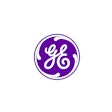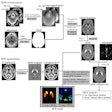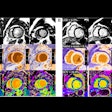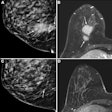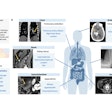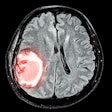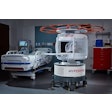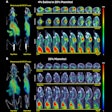Tuesday, November 28 | 8:50 a.m.-9:00 a.m. | RC315-02 | Arie Crown Theater
Screening breast MRI is an effective tool for women who carry the BRCA mutation and also for those with a history of breast cancer and/or high-risk lesions, according to research being presented Tuesday morning.Dr. Kristine Burk of Massachusetts General Hospital and colleagues reviewed 5,301 screening breast MRI exams performed in 2,709 women between 2011 and 2014. They identified each exam's indication, including BRCA mutation carriers, history of mediastinal radiation, family history of breast cancer, personal history of breast cancer, and personal history of high-risk lesions.
The most common indication for breast MRI was a personal history of breast cancer (55%), followed by family history (26%), BRCA mutation (11%), personal history of high-risk lesions (7%), and history of mediastinal radiation (1%).
The researchers compared measures across three groups: BRCA or history of radiation; family history; and personal history of breast cancer or high-risk lesions. The cancer detection rate for breast MRI was highest among women with the BRCA mutation or a history of mediastinal radiation, at 22 cancers per 1,000 exams. It was lowest in the family history group (eight cancers per 1,000 exams) and moderate in the personal history and high-risk lesion group (12 cancers per 1,000 exams).
When the researchers controlled for age, mammographic density, and available prior breast MRI, they found no significant differences in the cancer detection rates between the personal history or high-risk lesion group and the BRCA mutation or history of mediastinal radiation group, Burk's team found.
In addition, the positive predictive value for biopsies performed was highest in the personal history or high-risk lesion group, at 40%, followed by the BRCA mutation or history of mediastinal radiation group (33%).
The findings suggest that screening breast MRI could be an effective option for women with a personal history of breast cancer or high-risk lesions, as its performance is similar to that in BRCA patients, Burk and colleagues concluded.



.fFmgij6Hin.png?auto=compress%2Cformat&fit=crop&h=100&q=70&w=100)





.fFmgij6Hin.png?auto=compress%2Cformat&fit=crop&h=167&q=70&w=250)




